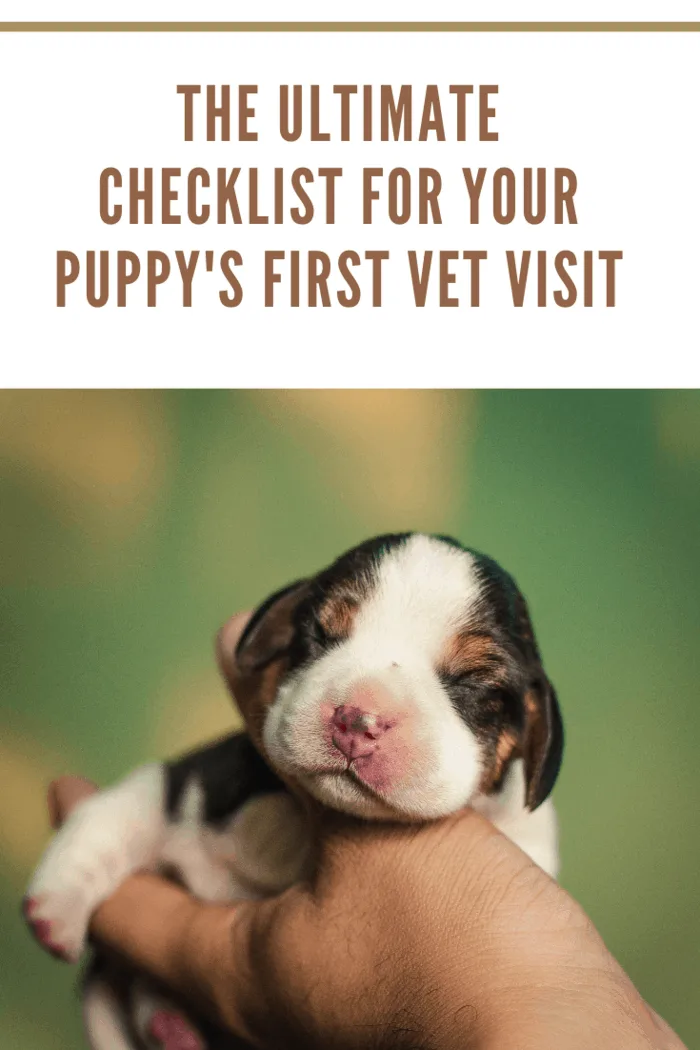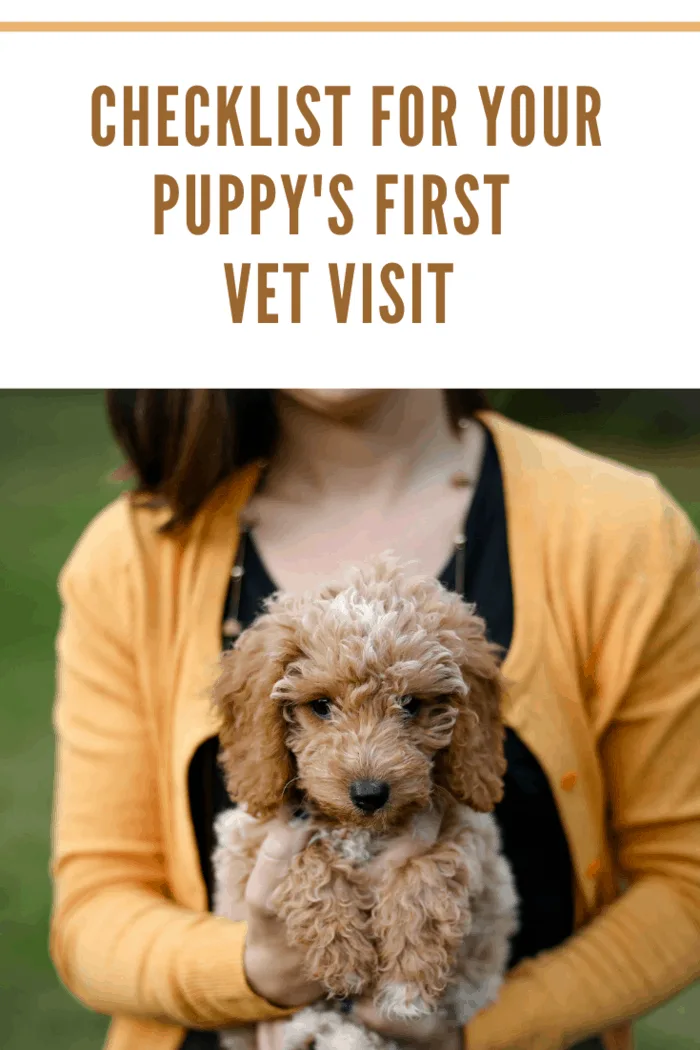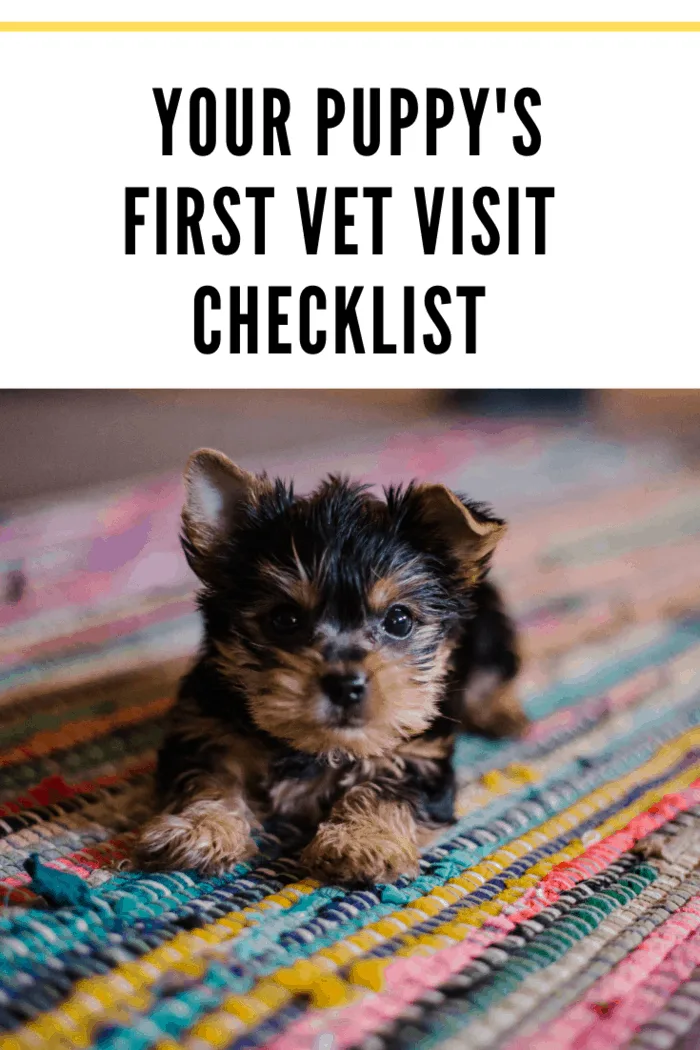You have taken the plunge and brought a dog into your home and life. Welcome to the dog owners club! Life with a puppy will never be the same again, and we mean that in a good way. Now, along with learning everyday care for your puppy, you need to schedule and plan for its first vet visit.
The first veterinary appointment is an excellent opportunity to ask questions and address concerns you may have about raising your new friend. Read this article and prepare yourself for your puppy’s first vet visit with this ultimate checklist.

Photo by Gursimrat Ganda on Unsplash
Find the right vet for your pet.
Before you can plan and schedule a vet visit, you need to choose a veterinarian.
Use the same diligence and criteria as when you are selecting a physician for yourself.
First, reconsider what is important to you.
What will make your life easier?
Location, office hours, payment options.
Think about the range of medical services you want for your puppy.
Then, use the internet to search for ‘the best vets near me.’
Typing that in will help you shortlist veterinarians according to your preferences.
For many pet owners, an essential factor is feeling comfortable asking questions and getting a commitment from their veterinarians.
If that is the case, we also advise you to get in touch with friends who already own pets and ask for their recommendations.
You can never have too many options for choosing the best for your puppy.
Timing the first vet visit
Most puppies are ready for adoption at around seven weeks, suggests Psychology Today.
According to most veterinarians and breeders, this age is the best time for a puppy to meet its new family.
In the first seven weeks of their lives, puppies learn unique skills that only other dogs can teach them.
As they spend time and play with playing littermates, they start to directly dog behaviors like fighting, hunting, catching, guarding, and sexual activity.
Consequently, this is also the best time for a first visit to the vet.
Naturally, you can push their first visit to ten weeks of age if you can not do it earlier, but keep in mind that the longer you wait, the more you put your pup at risk.

Meet Lainey Lou, the Goldendoodle. Photo by April Walker
What to expect once you are in the vet office
Standard paperwork
Once you are at the veterinarian’s office, you will have to complete some paperwork.
The information usually required are:
Essential information for you as an owner –
Your name and surname, home address, phone number, and employment.
These data are kept in a record so your veterinarian can contact you about future appointments and test results.
Info on your puppy –
Your puppy’s name, sex, where and when you purchased or were given your pup.
Info on whether or what medical care was given in the past, and if there are housebreaking concerns or behavior problems you are aware of.
A nose-to-toes examination
Next is an extensive examination of your cute little puppy, according to Pet Health Network.
First, the vet will check your puppy’s weight to ensure it is at a healthy weight.
Then they will take your puppy’s temperature to see whether or not there is currently any infection that the immune system is fighting.
Using a stethoscope, your vet will check the puppy’s lungs and heart to ensure its lungs are working well, and its heart rate is normal.
Furthermore, your veterinarian will check over your puppy’s body for lumps, swelling, and any indication of pain.
They will palpate the stomach and abdomen afterward for a more careful examination.
Next, they will make sure your puppy’s teeth are free of tartar and plaque and its tongue and gums are clear and the right color.
Its ears must look and smell fine, and its eyes must be bright.
The examination continues with checking whether your puppy’s anal glands are normal, its coat is healthy and shiny, and its skin is free of parasites.
At this stage, your veterinarian will probably provide deworming and medication or treatment for protection against ticks, fleas, and heartworms.
Lastly, they will check its tail, paws, and back, ensuring that everything from top to bottom is normal.
Vaccination
Puppies are very responsive to illnesses until they have received vaccine protection.
The first vaccinations are often given when puppies are between eight to twelve weeks old.
Whether your puppy will be vaccinated at its first veterinary appointment will depend on whether or not some vaccinations have already been received.
Your veterinarian will provide you with a vaccination schedule that includes all necessary vaccinations for your pet.
However, you should be aware that there are core and non-core vaccinations.
Core are the ones that all dogs should receive, and non-core vaccinations depend on your dog’s risk factors.
Core vaccinations include:
- Canine distemper (CDV) – is a dangerous disease, difficult to treat, and often fatal. (AVMA)
- Parvovirus (CPV2) – attacks a dog’s gastrointestinal organs and is fatal if untreated. (Microbe Wiki)
- Canine hepatitis (adenovirus or CAV2) – can cause eye and liver damage and breathing problems. (Wikipedia)
- Parainfluenza – quickly spread respiratory disease from dog to dog. (AVMA)
- Rabies – is the final vaccination needed because puppies must be 16 weeks of age to receive it. Rabies is fatal and, importantly, can be transmitted to humans. (Pet MD)
Non-core vaccinations (Bordetella, kennel cough, leptospirosis, or Lyme disease) depend on where you live and your pup’s lifestyle.

Lionhart , a teacup Yorkie
Consider the costs
Another vital thing to be aware of before visiting your vet is your puppy’s check-up costs.
They usually vary depending on your pet’s health and where you live.
Since a young puppy needs a series of vaccinations, the initial costs will be higher.
However, the price for regular puppy check-ups will likely decrease, naturally, unless your puppy needs particular medication.
Therefore, getting pet insurance to save on costs and vet bills is highly recommended, thus providing your pet with the needed healthcare.
In Conclusion
Your veterinarian is the person that has the answer to any questions you might have about the care of your new pet.
Therefore make a list of questions or come up with some during the examination; there is no better time to ask them.
Do not hesitate to ask for advice about your puppy’s diet, exercise, dental care, and emergencies.
And remember, your puppy will be a little nervous about this visit and may be tired and sleepy afterward.
Yet, the first veterinary appointment is so worth it since it is the perfect way to start with adequate care for your new furry friend.
